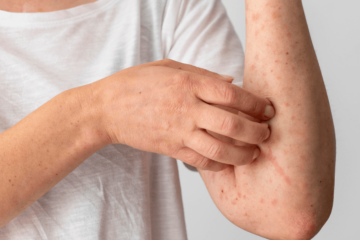When it comes to maintaining a healthy lifestyle, what we eat plays a crucial role. While there are plenty of nutritious foods available, there are also some harmful ones that we should avoid. In this article, we will discuss seven foods that you should steer clear of to promote better health and well-being.
1. Commercial Orange Juice
Commercial orange juice is often loaded with added sugars and lacks the fiber content of whole fruits. While it may seem like a healthy choice, the excess sugar can have negative effects on our health, including weight gain and an increased risk of diabetes. Instead, opt for freshly squeezed orange juice or whole oranges to get the full nutritional benefits without the added sugars.
2. Soy Protein Isolates
Soy protein isolates are highly processed and may be genetically modified. While soy can be a good source of protein for some individuals, it’s important to choose organic and non-GMO options. Some studies suggest that genetically modified soy may pose health risks, so it’s best to err on the side of caution and opt for alternative protein sources.
3. High Fructose Corn Syrup
High fructose corn syrup (HFCS) is a sweetener commonly found in many processed foods. It has been linked to obesity, insulin resistance, and various health issues. To avoid the harmful effects of HFCS, it’s important to read food labels carefully and choose products that don’t contain this ingredient. Opt for natural sweeteners like honey or maple syrup instead.
4. Commercial Meat with Nitrates
Processed meats, such as sausages, bacon, and deli meats, often contain nitrates as preservatives. These nitrates have been associated with health concerns, including an increased risk of cancer. To reduce your intake of these harmful substances, choose fresh, unprocessed meats from reputable sources.
5. Commercial Milk with rBST
Some commercial milk products are sourced from cows treated with recombinant bovine somatotropin (rBST), a growth hormone. While the use of rBST in cows has been deemed safe by regulatory agencies, there are concerns about its potential impact on human health. To avoid any potential risks, opt for hormone-free milk from organic or local sources.
6. Low-Quality Meats in Buffet Parties
When attending buffet parties, it’s best to be cautious about the quality of the meats served. Unknown sourcing and preparation conditions can pose food safety risks. To minimize the chances of foodborne illnesses, choose high-quality meats from reputable establishments or opt for vegetarian options.
7. Vegetable Oil
While vegetable oils are commonly used in cooking, some types can be harmful when processed at high temperatures. When heated, certain vegetable oils can release harmful compounds and free radicals. To promote better health, opt for healthier oils like olive oil, coconut oil, or avocado oil, which have higher smoke points and are more stable when exposed to heat.
Avoiding these seven foods can significantly contribute to a healthier lifestyle. By reducing the intake of additives, hormones, and potentially harmful substances, you can support your overall well-being and maintain a better nutritional balance. Instead, focus on consuming whole, minimally processed alternatives to ensure you’re providing your body with the nutrients it needs to thrive.



